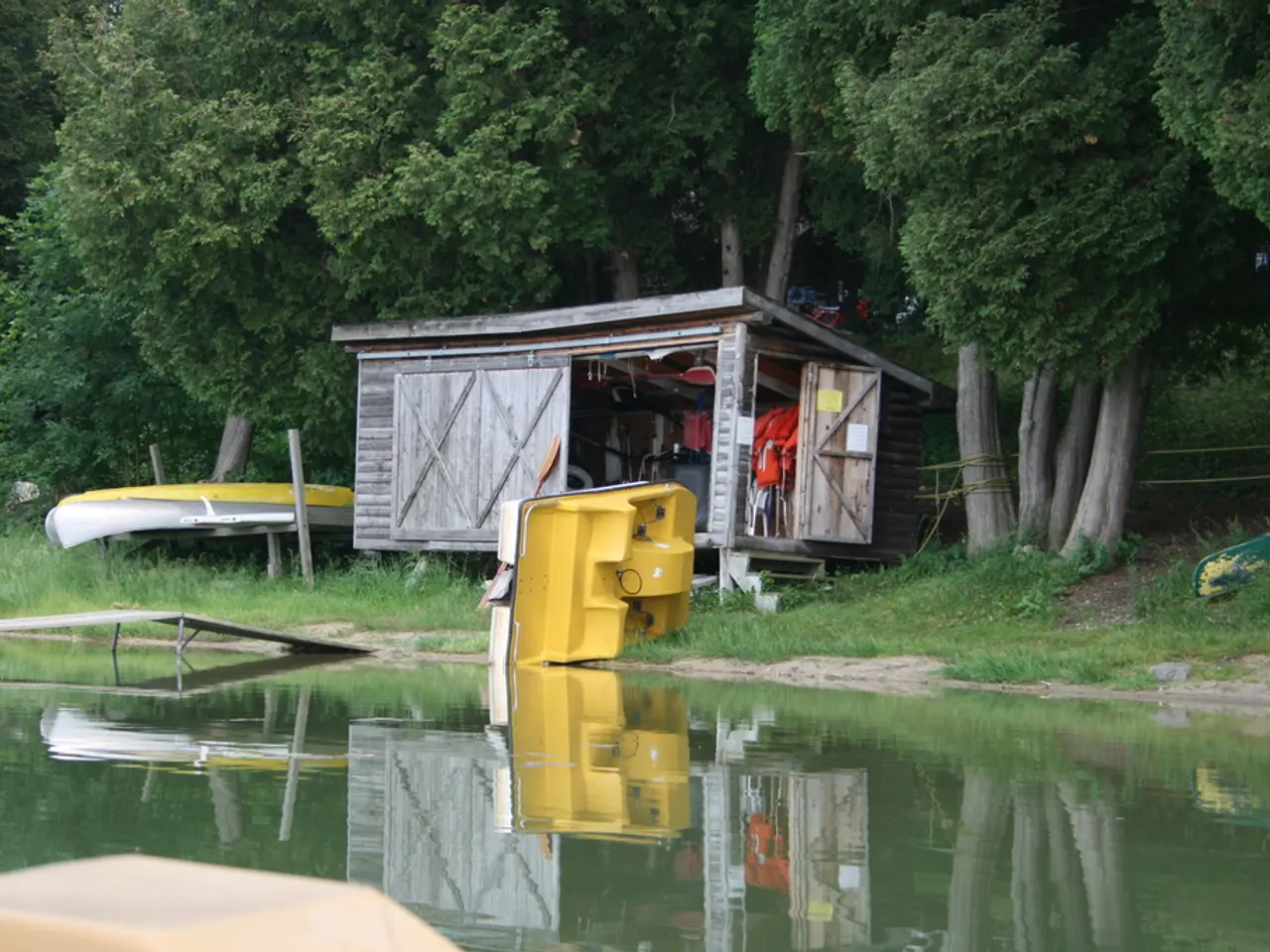Mixed Assortment: Wood Pellets, Flying Insects, Shrimp, and Wormwood
In the summer of 1960, Jean-Pierre Bordua, a 14-year-old boy, embarked on a life-changing journey when he worked at a logging camp in Lac-Saint-Jean, Quebec. The camp, located over 100 km north of Dolbeau, was nestled in almost untouched territory, boasting lakes teeming with trout.
Bordua's summer in the lumberjack camp marked the beginning of a period of manual labour that would shape his character and future outlook. During his time there, he spent his days stamping wood chips and working alongside fellow loggers. This experience, common in Quebec's logging camps of that era, often involved encounters with the harsh realities of manual labour, the natural environment, camaraderie among workers, and challenges that left lasting impressions.
However, specific details about Bordua's personal story during this period are not widely available. The lack of direct sources makes it challenging to provide an accurate account of his experiences. To gain a more comprehensive understanding, autobiographical materials, interviews, or historical records related to Jean-Pierre Bordua would be the best sources to consult.
Despite the absence of detailed accounts, it is known that Bordua's time in the lumberjack camp made him "quite tough." In the era when he worked, it was not common for youth to attend university. After his summer in the lumberjack camp, Bordua returned to school and later completed a master's degree in commerce and a law school education.
Bordua's life took an interesting turn when he worked for St. Lawrence Paper, a company that was later acquired by Domtar Paper. He then became part of the Canadian diplomatic corps in Rome and represented Quebec abroad. Bordua also made significant contributions to the environment by planting thousands of trees, including 1000 oaks.
One memorable day at the camp, Bordua was called by the "jobber" (boss) to clear the gravel and large rocks from the main dirt road. This task, along with the other experiences he had during his time in the lumberjack camp, undoubtedly left an indelible mark on Bordua's life.
The camp, with its fifty dormitory beds, dining hall serving simple yet hearty meals, and the diverse mix of workers, provided an environment that was both challenging and formative. Half of the workers on site could not write, and some stayed for months or even years to earn enough money for significant life events. One worker, in particular, had been living in the woods for 15 years due to a self-imposed isolation.
Despite having no formal education, Bordua met human beings who were worth knowing and who left a lasting impression on him. This experience, combined with the challenges he faced in the lumberjack camp, likely played a crucial role in shaping Bordua into the accomplished individual he would become.
Bordua's father, a bank director for an English bank, may have provided him with a comfortable upbringing, but it was his time in the lumberjack camp that truly moulded him into the resilient and hardworking individual he is today.
Jean-Pierre Bordua, influenced by his French upbringing and exposed to the harsh realities of manual labor during his summer at a Quebec lumberjack camp, later pursued higher education in commerce and law, demonstrating his exceptional dedication to education-and-self-development. In addition, Bordua's time spent in the camp fostered an interest in sports, as he confronted challenges that tested his physical endurance, shaping his strong, resilient lifestyle.




